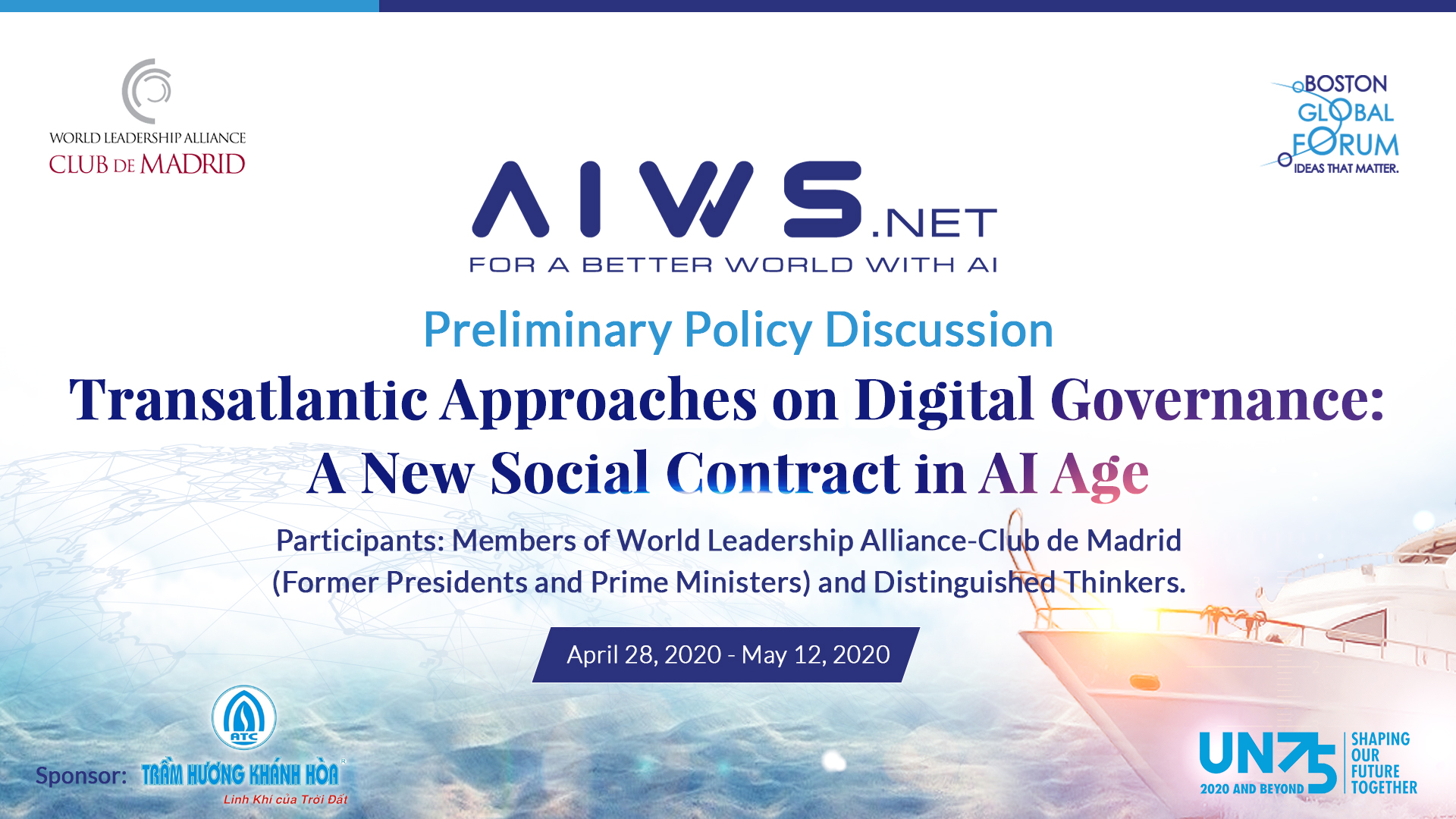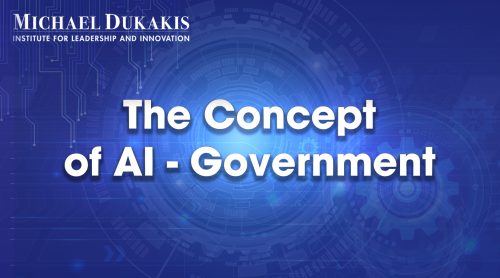An online preliminary policy discussion about the Transatlantic Approaches on Digital Governance: A New Social Contract in Artificial Intelligence (AI) Age will be held under the AI World Society Innovation Network (AIWS.net) from April 28, 2020.
A face-to-face policy discussion will be held in Boston in September 16-18, 2020.
The World Leadership Alliance-Club de Madrid (WLA-CdM) in partnership with the Boston Global Forum (BGF) is organizing a Transatlantic and multi-stakeholder dialogue on global challenges and policy solutions in the context of the need to create a new social contract on digital technologies and Artificial Intelligence (AI).

Over the years, Transatlantic relations have been characterized by close cooperation and continuous work for common interests and values. This cooperation has been essential to enhance the multilateralism system, considering the shared principles from both sides on democracy, rule of law, and fairness.
By comparing American and European approaches in the creation of a new social contract on AI Age and digital governance, under the critical eye of former democratic Heads of State or Government, this policy dialogue will stimulate new thinking and bring out ideas from representatives of governments, academic institutions and think tanks, tech companies, and civil society, from both regions.
At the same time, the discussion will generate a space to encourage and strengthen Transatlantic cooperation on the new social contract of digital governance in the framework of needed reforms of the multilateral system and will serve as a platform to establish a Transatlantic Alliance for Digital Governance. Besides, the policy discussion aims to discuss the creation of an initiative to monitor governments as well as companies in using AI and generate an AI Ethics Index at all levels.
Given the world health emergency experienced in the first months of the year related to the COVID-19 pandemic and its impact in all actors and spheres of life, digital technologies, and artificial intelligence have been strong allies to face the situation in multiple dimensions (scientific, health, social, etc.). However, digital technologies also bring new challenges to address under these circumstances. New communication channels have contributed to the rapid spread of fake news about COVID-19, generating disinformation, increasing confusion and influencing society’s perception, raising collective concern. On other occasions, the new tools used to track and face the virus could imply a violation of privacy rights.
The relevance of the topic leads us to include a global health security component to the Policy Lab, analyzing the implications of artificial intelligence and new technologies in this regard, as well as the response of governments, international organizations, companies and society, where the situation has demonstrated that a Social Contract on digital governance and the renewal of multilateralism and global cooperation mechanisms are more necessary than ever.







